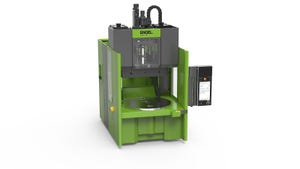Plastics Substitute Barks Up the Right Tree
Sustainable-packaging startup turns tree bark into a bioplastic-based alternative that runs on existing package-molding lines.
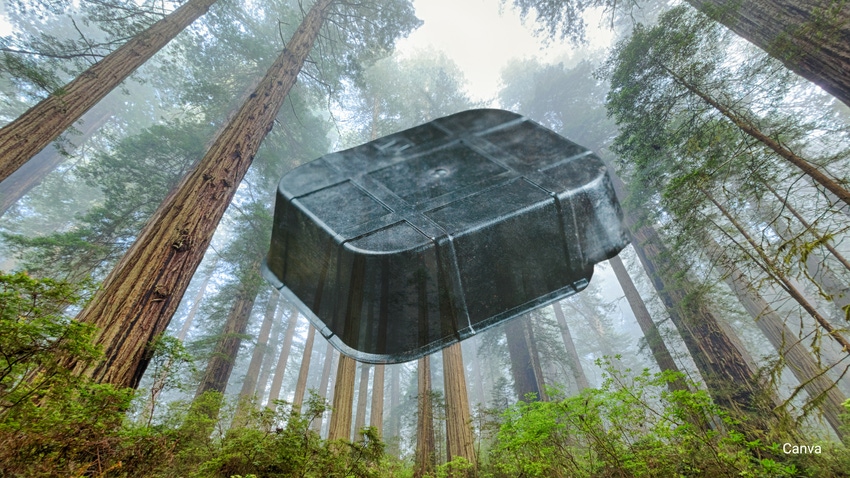
At a Glance
- Unique bark-based material can be home or commercially composted
- Bark feedstock is renewable agricultural and timber-industry waste
- Rigid food packaging targeted as the first product application
Bpacks, a start-up headquartered in London, England, has developed a compostable bark-based material that integrates seamlessly with plastic-package manufacturing lines.
The company’s technology enables production of bark-based pellets and sheets for use as a substitute for plastic. Bpacks can produce the bark-based material as well as finished rigid packaging at the company's 300-m2/3,230-sq-ft R&D center in Belgrade, Serbia.
The production process for the material closely resembles that of conventional polymers; for example, package production using injection molding or thermoforming mirrors the production of plastic packaging.
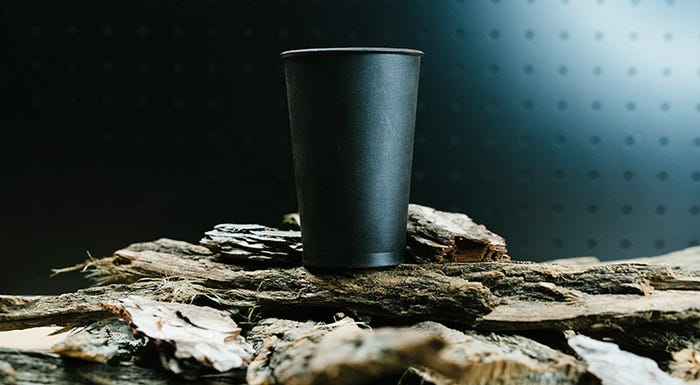
BPACKS
No new tooling is required for package molding, saving time and capital expense for packaging manufacturers interested in switching from plastic to bark-based material.
In addition to these benefits, the Bpacks processing method has a much smaller carbon footprint than plastics processing. According to the company, its technology releases up to six times fewer carbon dioxide emissions than traditional plastic production methods.
Recipe for Bpacks composite packaging.
Bpacks produces its bark-based composite material using only “ingredients that do not require complex synthetic processing,” says Nikolay Semenov, CSO and co-founder of Bpacks. “All chemical processes take place in situ during the preparation of bark and compounding.”
While Semenov declines to disclose the exact formulation, he does acknowledge that “50% to 70% of the [material’s] composition is bark. The rest is processing aids and biopolymer binder. Biopolymers, including those in bark, are used as a matrix.”
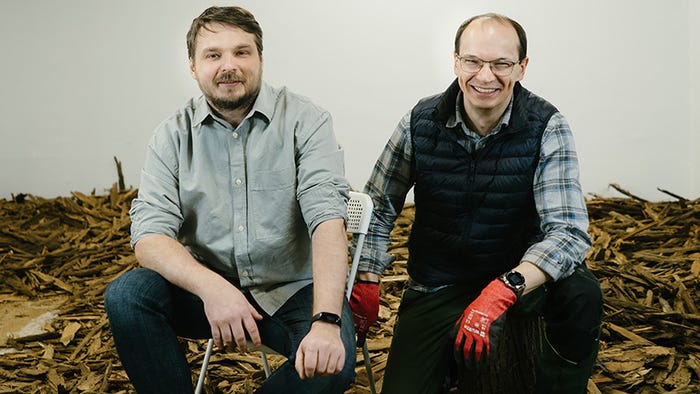
Bpacks co-founders Nikolay Semenov, CSO, and Mikhail Skalkin, CEO. BPACKS
The material is 100% bio-based, with up to 75% of its content sourced from agricultural and timber-industry waste. Bark is a plentiful waste resource, with production levels estimated at 300 to 400 million cubic meters annually.
Bpacks packaging applications and end of life.
Bpacks’ material is engineered for compatibility with both home and industrial composting. The company has conducted testing for home composting at its laboratory and continues to test various decomposition methods. It plans to eventually pursue composting and food contact certifications for the material.
Testing to date shows the bark-based material breaks down into compost within one week in an active environment and can decompose fully in one to two months in moist soil. Decomposition releases nutrients that enrich the compost.
In contrast, biodegradable polymers such as polylactic acid (PLA) and poly(butylene adipate-co-terephthalate) (PBAT) eventually decompose into water and carbon dioxide without adding nutrients to compost.
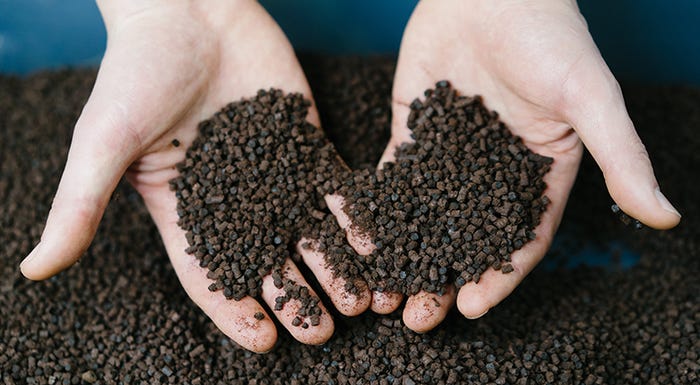
Bpacks materials are in pellet form. BPACKS
The Bpacks material’s initial commercial application is rigid food packaging, including fruit packs and packaging for fast-food restaurants. In addition, the company is considering applications such as cosmetics jars and containers for detergent.
Bpacks is currently in talks with two companies for a pilot production run; details on the projects are not yet available.
To protect its intellectual property, the company recently filed an international patent application under the Patent Cooperation Treaty (PCT). “Our primary focus is on our existing patent and formula. Once this phase is completed, our aim is to enhance our commercial endeavors,” Semenov says.
Bpacks is “looking to broaden [its] production capabilities,” he explains. “This involves utilizing a single line for testing formulas and exploring various packaging innovations. Additionally, we plan to extend our technology through franchising by seeking strategic partners worldwide.”
About the Author(s)
You May Also Like




